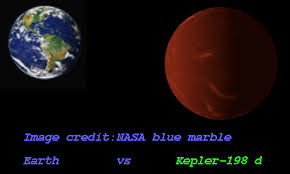NASA: Pioneering Space Exploration and Innovation

Introduction
The National Aeronautics and Space Administration (NASA) is at the forefront of space exploration, scientific discovery, and research in aeronautics. Founded in 1958, NASA has played a vital role in expanding our understanding of the universe and has been pivotal in numerous landmark missions, including the Apollo Moon-landing missions and the Mars Rover missions. As humanity looks towards future explorations, NASA’s ongoing projects and innovations are essential not just for scientific advancement but also for inspiring future generations.
Recent Developments and Missions
As of 2023, NASA has been actively working on several ambitious projects. One of the most noteworthy is the Artemis program, which aims to return humans to the Moon by the mid-2020s. The Artemis I mission, an uncrewed test flight, successfully launched in November 2021 and tested the Space Launch System (SLS) and Orion spacecraft. Following that, Artemis II, slated for 2024, will carry astronauts around the Moon, marking humanity’s first return to lunar orbit in over 50 years.
In addition to lunar exploration, NASA has intensified its efforts on Mars. The Perseverance rover, which landed in February 2021, is currently conducting experiments to search for signs of ancient life and collect samples for future return to Earth. Recently, Perseverance successfully extracted oxygen from the Martian atmosphere, a significant milestone in supporting future human missions to Mars.
Collaborations and Human Spaceflight
Nasa is also making strides in international collaboration. The Artemis program includes partnerships with space agencies from around the world, including the European Space Agency (ESA) and the Japan Aerospace Exploration Agency (JAXA), strengthening global efforts in space exploration.
Moreover, NASA continues to support the International Space Station (ISS), a hub for scientific research and international cooperation in low Earth orbit. With plans for the ISS to be operational until at least 2028, the agency is exploring commercial partnerships to maintain a sustained human presence in space.
Conclusion
NASA’s influence in space exploration is profound, affecting not only scientific research and technological innovation but also inspiring societal advancement. Looking ahead, the agency is poised to return humans to the Moon, explore Mars, and beyond. The results of these exploration efforts will provide essential knowledge that could help humanity understand its place in the universe. As such, the work of NASA remains crucial now more than ever, heralding an exciting era in space exploration that holds the potential to shape our future.









